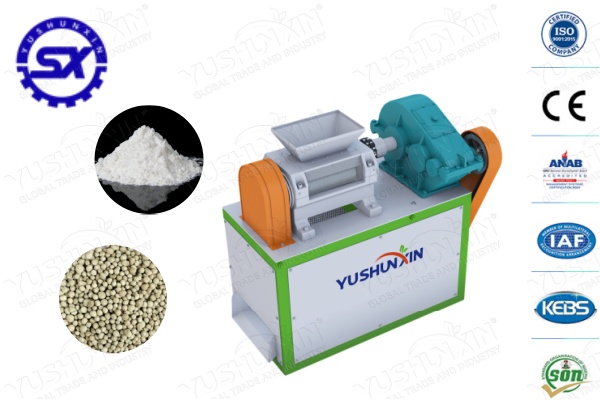Double roller granulators excel in processing limestone powder into high-quality granules, playing a significant role in fertilizer production. Understanding how this machinery operates provides valuable insights into enhancing production efficiency and product quality.
What Raw Materials Are Suitable for Fertilizer Production?
Limestone powder is a key raw material in the manufacture of mineral fertilizers. It primarily supplies calcium, an essential nutrient that improves soil fertility and enhances plant growth. Other suitable materials include potassium sulfate and superphosphate, which deliver potassium and phosphorus, respectively. Each of these raw materials has specific applications across various industries.
For example, industries focused on soil amendment often utilize limestone to balance pH levels, making it critical for agricultural sustainability. Meanwhile, horticultural producers favor fertilizers enriched with phosphorus sourced from superphosphate for improved flowering and fruiting. Recognizing the diverse needs of these industries allows manufacturers to tailor their production processes effectively, ensuring that the final products meet market demands.

How Does a Double Roller Granulator Work with Limestone Powder?
The operation of a double roller granulator involves the compaction of limestone powder using two opposing rollers. Each roller compresses the powder, applying significant pressure that leads to granule formation. This extrusion method allows limestone powder to bond without the need for additional water or binding agents, which can often dilute the nutrient content.
This machine incorporates features that optimize the granulation procedure. Adjustable roller pressure and speed enable operators to modify conditions, accommodating the specific properties of limestone powder during processing. For instance, when dealing with finer powders, reducing the pressure may result in improved granule uniformity.
Additionally, the feeding system of the double roller granulator ensures consistent powder supply to the rollers, enhancing overall granulation efficiency. When manufacturers maintain this consistency, they produce high-quality granules that retain the essential characteristics of limestone, thereby maximizing nutrient availability. Furthermore, the durability of these granules often leads to reduced losses during transportation and storage.
What Are the Benefits of Using Double Roller Granulators in Limestone Processing?
The advantages of using double roller granulators for limestone powder processing are considerable. Firstly, this technology improves overall production efficiency. Continuous processing capabilities allow the machine to handle large volumes without significant downtime, making it suitable for high-capacity operations.
Moreover, granules produced through this extrusion method exhibit enhanced physical properties. Uniform granules flow better and distribute more evenly when applied to soils, improving nutrient delivery. This aspect is particularly crucial for customers who require precise application methods in their fertilization programs.
Additionally, using a double roller granulator minimizes dust formation during the granulation process. Dust can compromise workplace safety and reduce the efficiency of material usage. By producing solid granules instead of powders, manufacturers can enhance the environmental profile of their production processes, aligning with sustainability goals.
The technology also addresses the issue of nutrient retention. Since limestone granules produced through this method undergo minimal processing, the risk of nutrient loss is significantly lowered. This aspect ensures that customers receive a product rich in essential minerals, thereby increasing satisfaction and trust in the brand.
Which Other Machines Are Essential for Supporting Limestone Granulation?
While double roller granulators are instrumental, other machines complement their functionality. For example, screening machines are crucial in separating appropriately sized granules from fines. This ensures that only uniform products reach the market, further enhancing quality.
Crushing machines, such as jaw rock crushers, are equally important. They prepare limestone powder for granulation by reducing particle size, which promotes optimal contact during the granulation stage. A seamless integration of these machines can lead to a streamlined production line, maximizing efficiency and output quality.
Conclusion
Double roller granulators play a vital role in the effective processing of limestone powder into high-quality granules. By applying controlled extrusion techniques, these machines enhance the production of mineral fertilizers while preserving the essential qualities of the raw materials. The process not only improves efficiency but also ensures the sustained release of nutrients, catering to diverse industry needs.
As manufacturers look to optimize their production capabilities, integrating advanced granulation solutions becomes increasingly important. Organizations seeking reliable equipment should consider trusted partners in the industry, such as Yushunxin, to enhance their mineral fertilizer production processes effectively. Investing in high-quality machinery leads to substantial improvements in operational performance and product satisfaction. You can visit: https://www.extruder-granulator.com/limestone-powder-granulation-machine/